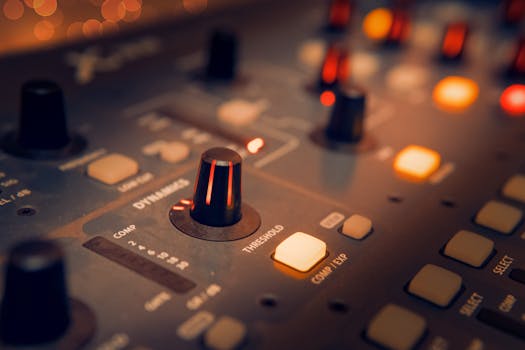
Reports suggest OpenAI, the company behind ChatGPT and Sora, is developing an AI model capable of generating music from text and audio prompts. This could revolutionize music creation for professionals and hobbyists alike. Is OpenAI about to disrupt the music industry?
OpenAI's Next Act: AI Music Generation on the Horizon
OpenAI, known for its groundbreaking AI models like ChatGPT and Sora, is reportedly venturing into the world of music generation. This move could significantly impact the music industry, offering new creative tools and possibilities for artists and content creators. Let's dive into what we know and what it could mean for the future of music.
Text-to-Music: The Future of Composition?
The core concept behind OpenAI's reported project is the ability to generate music from text and audio inputs. Imagine simply describing the type of music you want – "a melancholic jazz piece with a walking bassline" – and having AI instantly create it. Or, envision adding a specific instrument, like a guitar, to an existing audio track with just a text command. This technology has the potential to democratize music creation, making it accessible to a wider audience.
How it Works: Training the AI
According to reports, OpenAI is collaborating with students from the prestigious Juilliard School to understand musical notation and create the data necessary for training its AI models. This collaboration highlights the importance of human expertise in guiding AI development, ensuring the models understand the nuances and complexities of music.
Practical Applications: Beyond the Hobbyist
While the technology holds appeal for hobbyists and aspiring musicians, its potential extends far beyond. Consider the following:
- Advertising Agencies: Quickly generate custom jingles and background music for campaigns.
- Creative Studios: Create unique soundtracks for videos and animations.
- Film Production Companies: Develop original scores for films and documentaries without the need for expensive composers and orchestras.
In essence, this technology could drastically reduce the time and cost associated with music creation, making it more accessible and efficient for professionals in various industries.
OpenAI's History with Music AI
This isn't OpenAI's first foray into music generation. The company previously experimented with models like MuseNet and Jukebox. However, these earlier attempts didn't achieve widespread adoption or significant impact. This time, OpenAI seems determined to make a bigger splash, potentially competing directly with startups like Suno, which are already making waves in the AI music space.
The Competition: Google's Lyria
OpenAI isn't alone in its pursuit of AI-powered music creation. Google has also entered the arena with Lyria, a music AI model available through Google Cloud. This competition is likely to drive innovation and lead to even more advanced and accessible music generation tools in the future.
Integration: ChatGPT, Sora, or a Standalone App?
A key question remains: how will OpenAI integrate this new music generation capability? Will it be incorporated into existing platforms like ChatGPT or Sora, or will it be released as a standalone application? Each option presents its own advantages and disadvantages.
- ChatGPT Integration: Could allow users to seamlessly generate music based on textual prompts within the chatbot interface.
- Sora Integration: Could enable the creation of videos with AI-generated soundtracks, further enhancing the platform's capabilities.
- Standalone App: Could offer a dedicated and focused experience for music creation, potentially attracting a wider audience of musicians and producers.
The ultimate decision will likely depend on OpenAI's strategic goals and target audience.
Ethical Considerations and the Future of Music
As with any powerful technology, AI music generation raises ethical considerations. Concerns about copyright infringement, the displacement of human musicians, and the potential for misuse are all valid and need to be addressed.
Protecting Artists and Copyright
Ensuring that AI-generated music doesn't infringe on existing copyrights is crucial. This may involve developing algorithms that can identify and avoid replicating existing melodies and harmonies. Additionally, establishing clear guidelines for the ownership and licensing of AI-generated music is essential.
Empowering, Not Replacing, Musicians
The goal should be to empower musicians with AI tools, not replace them. AI can assist with tasks like generating ideas, creating variations on existing themes, and automating repetitive tasks, freeing up musicians to focus on the creative aspects of music production.
Conclusion: A Symphony of Possibilities
OpenAI's reported venture into AI music generation holds immense potential. While ethical considerations and challenges remain, the technology promises to revolutionize the way music is created and consumed. Whether it's used by professional composers, amateur musicians, or content creators, AI music generation is poised to reshape the landscape of the music industry. The future sounds interesting!
